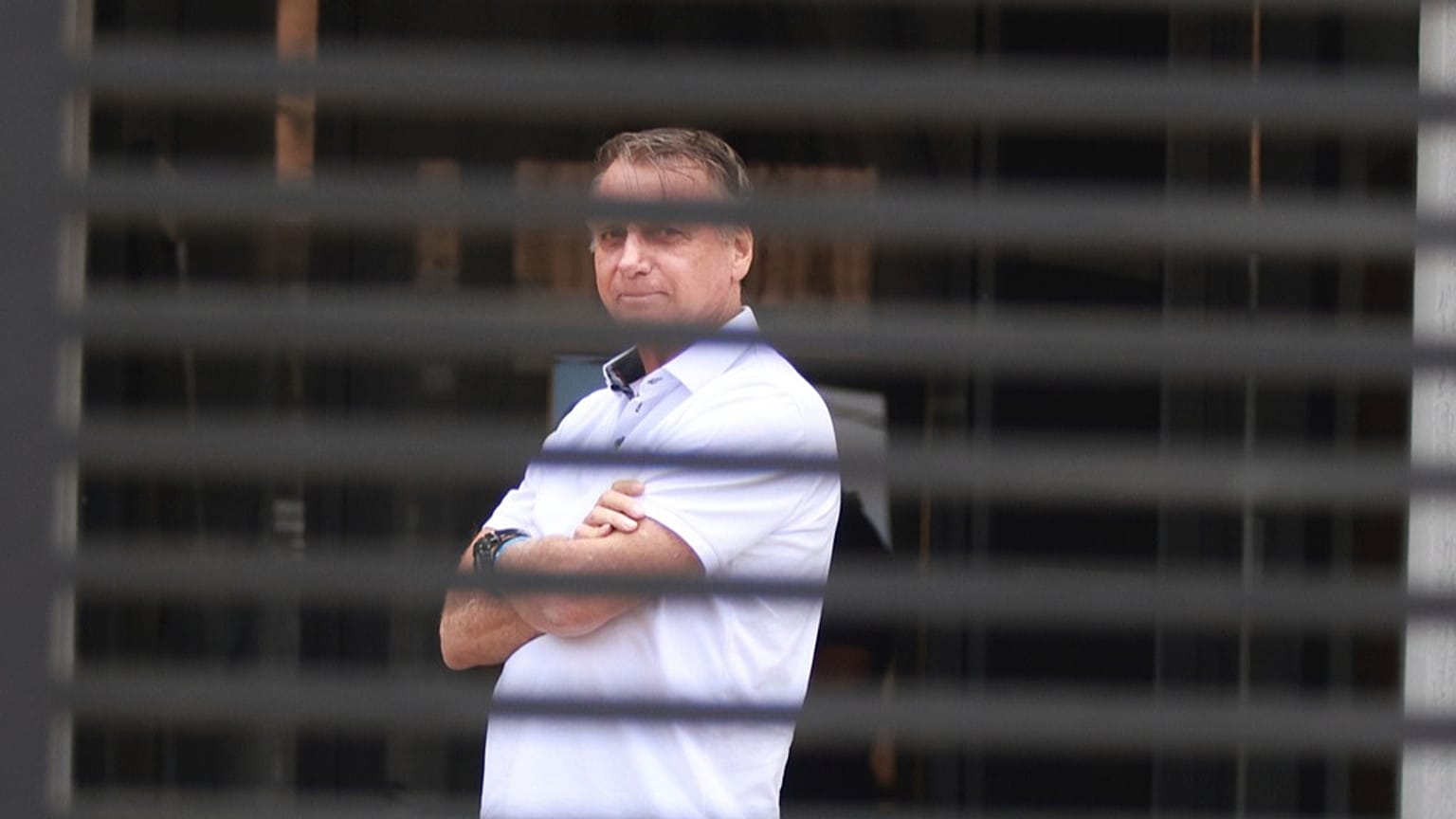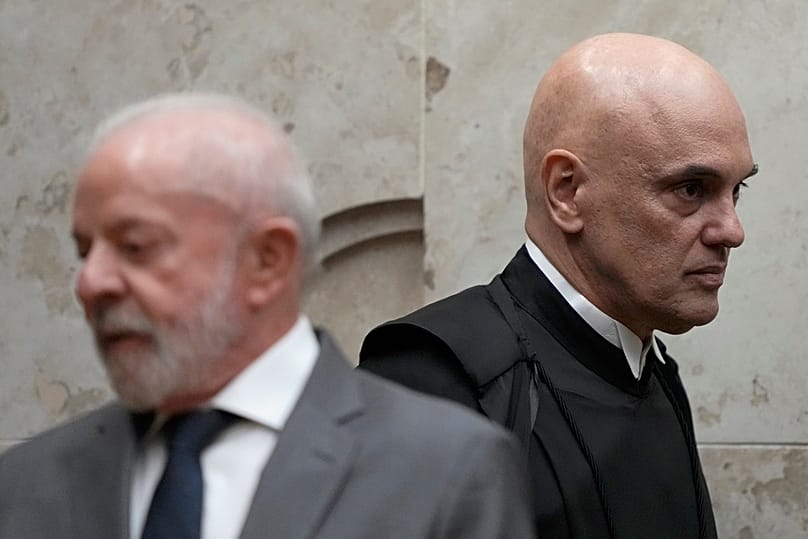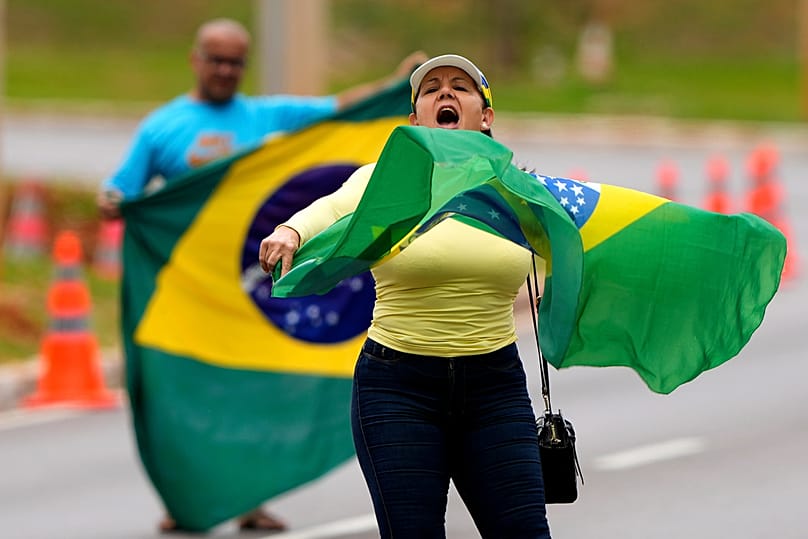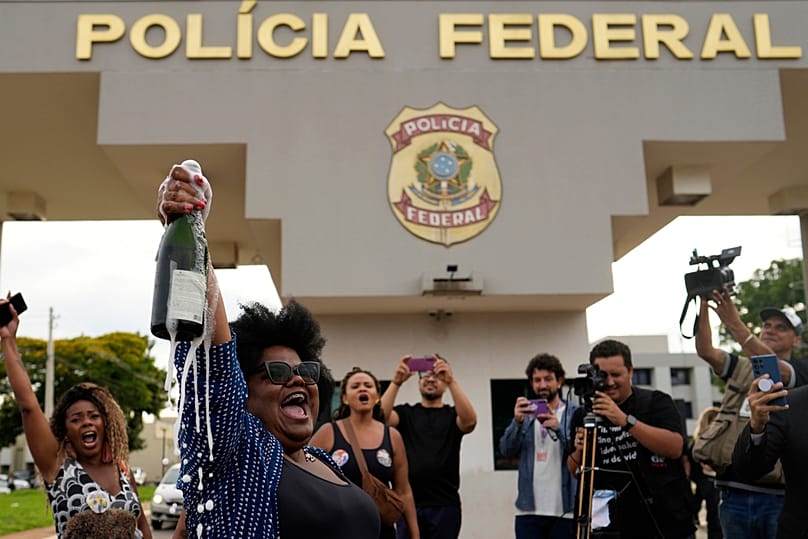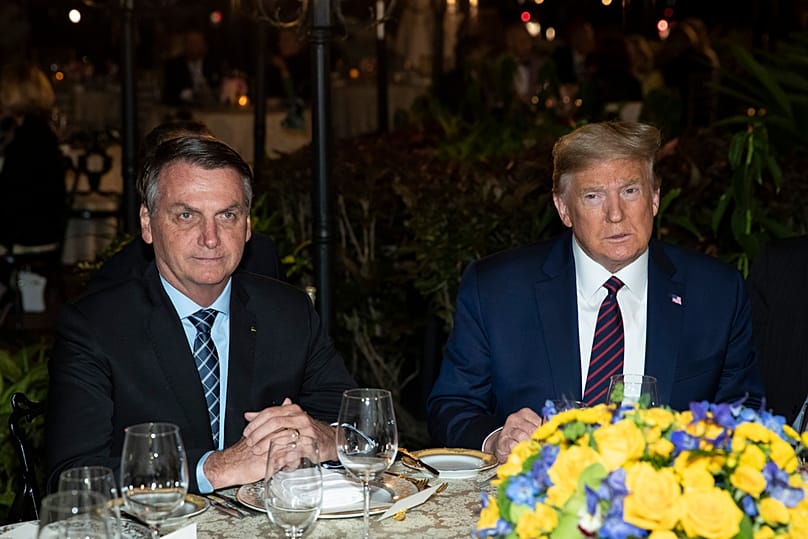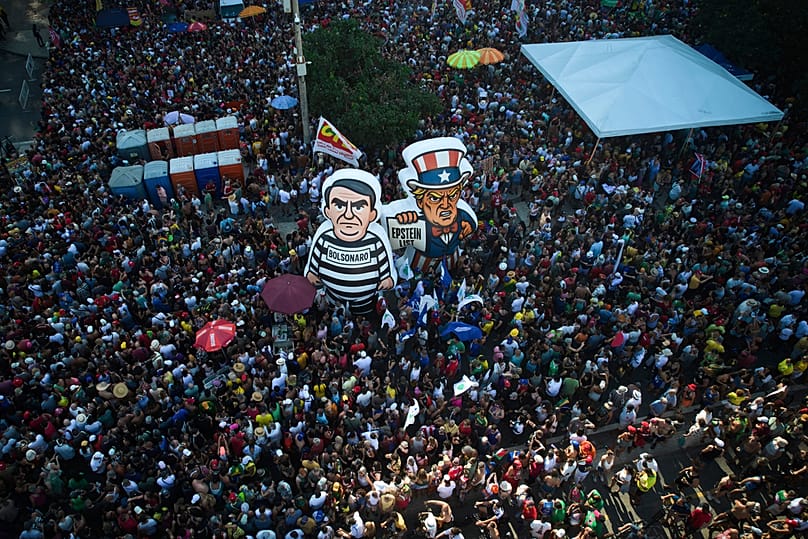Former Brazilian President Jair Bolsonaro has started to serve a 27-year prison sentence on Tuesday after he was convicted for leading a coup attempt following his 2022 presidential election loss, despite pressure and protest from US President Donald Trump.
Former Brazilian President Jair Bolsonaro started his 27-year prison sentence on Tuesday for leading a coup attempt, to the surprise of many in the South American nation who doubted he would ever end up behind bars.
Supreme Court Justice Alexandre de Moraes, who has overseen the case, ruled that Bolsonaro will remain in custody after being pre-emptively arrested on Saturday.
Supporters and detractors of the embattled former leader gathered outside the federal police headquarters after the order was issued, with many calling for his release while others toasted to his imprisonment.
The far-right leader had been under house arrest since August and was taken in on Saturday after trying to break his ankle monitor. Bolsonaro blamed “hallucinations”, a claim that de Moraes dismissed in his pre-emptive arrest order.
Bolsonaro’s prison conditions
Bolsonaro will not have any contact with the few other inmates at the federal police headquarters. His 12-square-meter room has a bed, a private bathroom, air conditioning, a TV set and a desk, according to federal police.
He will have free access to his doctors and lawyers, but others will have to get their access approved by the Supreme Court.
De Moraes determined on Tuesday that Bolsonaro’s defence had exhausted all appeals of his conviction. His lawyers disagreed however and pledged to continue filing requests for house arrest due to the former leader's poor health.
The Supreme Court justice has already ruled against it, but that decision could be revised if circumstances change. “There is no legal possibility of any other appeal,” de Moraes said in his decision.
Brazil’s criminal law also could have allowed the 70-year-old to be transferred to a local penitentiary or to a prison room in a military facility in the capital Brasilia.
Former aides and allies sentenced
The former president and several of his allies were convicted by a panel of Supreme Court justices for attempting to overthrow Brazil’s democracy following his 2022 election defeat.
The plot included plans to kill the then President-elect Luiz Inácio Lula da Silva, Vice President Geraldo Alckmin and Justice de Moraes. The plan also involved encouraging an insurrection in early 2023.
The former president was also found guilty of charges including leading an armed criminal organisation and attempting the violent abolition of the democratic rule of law.
Bolsonaro has always maintained his innocence and denied any wrongdoing.
Two other Bolsonaro aides were also convicted – Augusto Heleno and Paulo Sérgio Nogueira, both Army generals, who were sent to a military facility in the capital Brasilia to start serving their sentences.
Former Justice Minister Anderson Torres is now imprisoned at the Papuda penitentiary, while Admiral Almir Garnier will serve his term at Navy facilities also in Brazil’s capital.
Bolsonaro’s running mate and former Defence Minister Walter Braga Netto, another army general, is also to remain in prison at a military facility in Rio de Janeiro.
De Moraes also confirmed that lawmaker and former head of Brazil’s intelligence agency Alexandre Ramagem is on the loose in the United States. The judge has ordered the Speaker of the lower house of Congress, Hugo Motta, to strip Ramagem of his seat.
Tensions with the US
The former president is an ally of US President Donald Trump who has called the trial of the former Brazilian leader a “witch hunt” on numerous occasions. Bolsonaro was mentioned in a July order by the US administration to raise tariffs on several Brazilian exports by 50%.
Relations between the two countries have improved since, with Lula and Trump meeting in Malaysia at the ASEAN summit in October. Most of those higher tariffs have been dropped. The US also imposed sanctions on de Moraes and other Brazilian officials involved.
The measures in support of Bolsonaro did not have their desired effect and the trial proceeded nevertheless. Lula’s popularity was boosted by the perception that he was defending Brazilian sovereignty.
Bolsonaro is not the first former Brazilian president to go to prison, his predecessor Michel Temer and successor Lula have also both been to prison. Fernando Collor de Mello, who led between 1990 and 1992, is currently under house arrest pending a corruption trial.
Bolsonaro is the first however to be convicted of attempting a coup.















